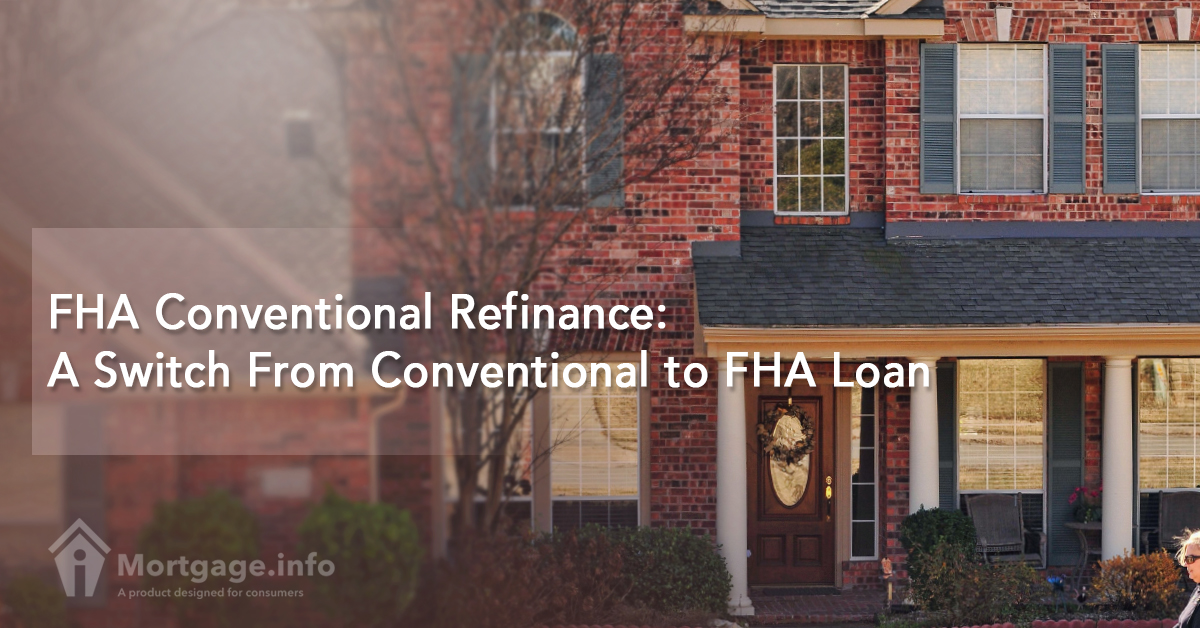FHA homeowners have several options when refinancing their existing insured mortgages. Not to be left out, homeowners with non-FHA insured loans can refinance into FHA loans, known as “conventional refinance”. Those with conventional home loans can think these benefits of an FHA conventional refinance over.
Benefits of FHA Conventional Refinance
Per its definition, the FHA uses “conventional refinance” for refinances involving a non-FHA loan being refinanced into an FHA loan, including those conforming to Fannie Mae and Freddie Mac standards.
There are a myriad reasons why homeowners make the switch from conventional to FHA mortgage. These three reasons top the list.
1. FHA loans have less stringent guidelines.
Lower credit scores, not-so-stellar credit histories, higher debt-to-income ratios, and high loan-to-value ratios. Conventional loan borrowers with these “bumps” will likely find it more difficult to refinance under conventional loan standards than if they were to take out a new FHA loan.
FHA-approved lenders will still recognize these problems but they can be more forgiving per the FHA guidelines.
Indeed, those whose credit scores have fallen below 620 are more welcome to apply for FHA loans whose credit score standards embrace 580 and lower.
This leniency extends to borrowers with non-traditional credit profile or those with insufficient or lacking credit histories. Rental payments and utility bills can be presented in lieu of the usual credit history for FHA loans.
More importantly, refinancing into FHA loans has enticed borrowers with little to negative equity position, something that is not permissible with conventional loans under normal circumstances.
2. FHA loans cost less than conventional loans.
It’s true that rates on FHA and conventional loans have leveled the past few years. But FHA loans are not priced the way conventional loans are.
Under risk-based pricing practiced by Fannie Mae and Freddie Mac for example, each credit score has an equivalent loan price level to reflect the risks and costs of extending the loan to a borrower. This is represented by points whose number could go higher as the credit score and equity dip lower.
Essentially, your score will not determine your loan pricing under FHA loans.
3. FHA loans have more refinance options.
There’s plenty of FHA refi loans to consider should you do the FHA conventional refinance:
- If you plan to borrow against your home’s equity and pocket the cash, you can apply for a cash-out refinance. Requirements under the program are (a) a six-month mortgage history with one to none 30-day + late payment for 12 months, (b) sufficient income as supported by pay stubs, tax returns and W-2 Forms, and (c) an appraisal showing 85% loan-to-value ratio.
- If your intention is just to pay off your existing mortgage and the new loan’s associated closing costs of the new, a simple refinance will do. The FHA can allow up to 96.5% LTV but no cash-out is allowed.
- If your plan is to lower your rate and change your loan term, you can do an FHA term and rate refinance. The LTV limit for this type of refinance is 97.75%.
Basics of FHA Conventional Refinance
Lenders will underwrite these loans for backing under the FHA conventional refinance. Thus, rates, requirements and costs vary lender to lender and depend on the type of FHA refi loan.
Always shop for rates and fees and talk to as many lenders as possible. Should you perceive any problem in your move to an FHA loan, talk to a lender today.

